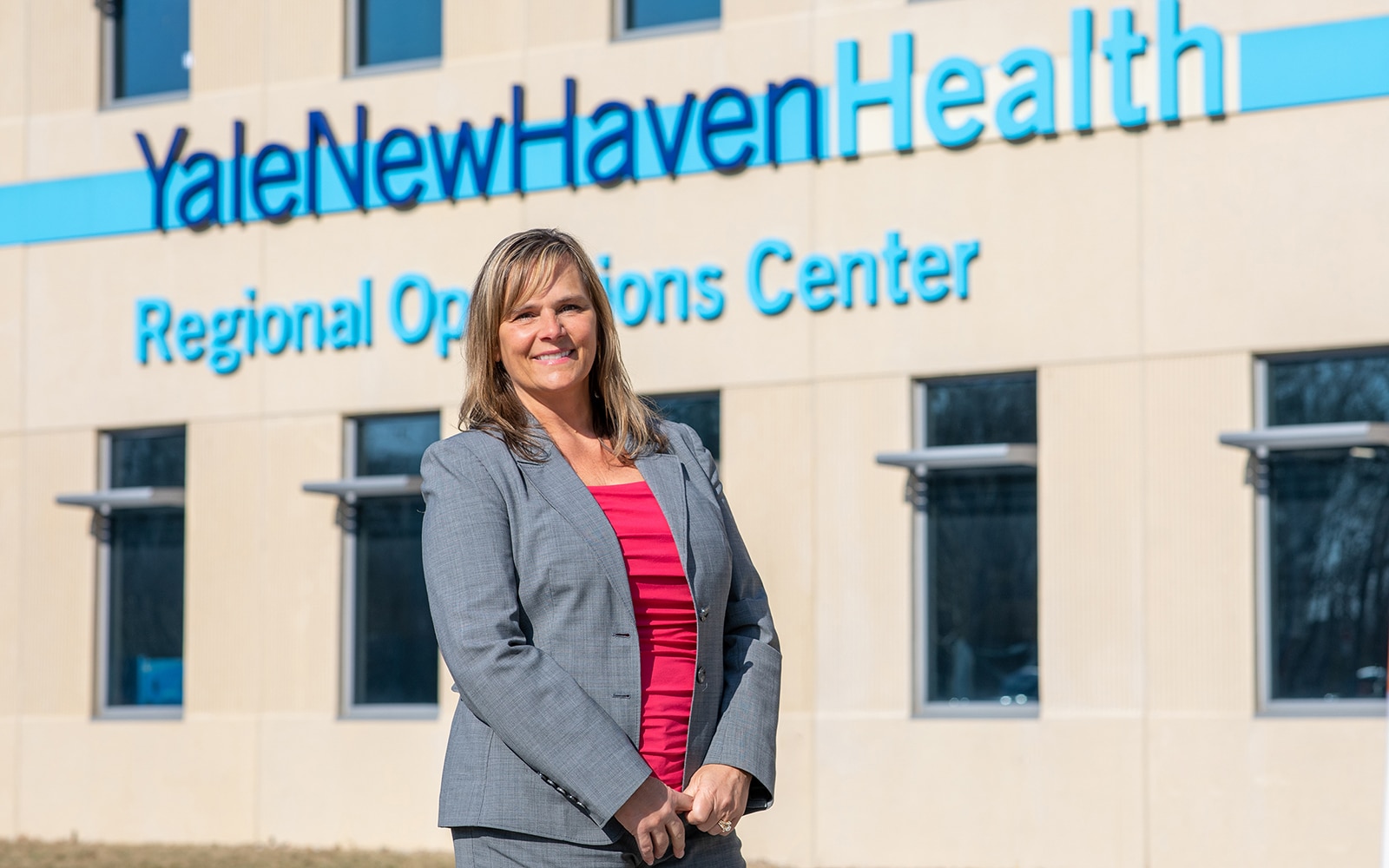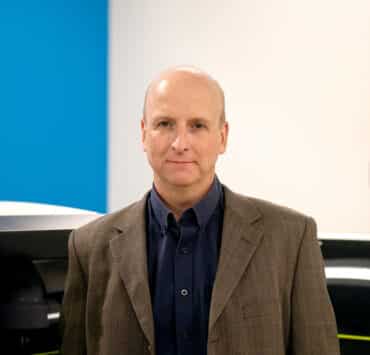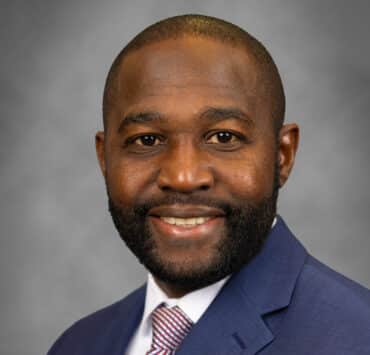Jacqueline Epright has a talent for joining an organization and fixing the problems that block success. I’m very good at sorting through the chaos and identifying a strategic path forward,” she says. Educated as a CPA, Epright is the vice president and chief supply chain officer at Yale New Haven Health, the fifth-largest healthcare system in the nation.
After earning a bachelor’s in accounting from the University of Connecticut, Epright joined Arthur Anderson as an auditor. She began her career in healthcare when she signed on with an Arthur Anderson client, one of the largest homecare divisions in Connecticut, where the clinical leaders offered her some valuable advice.
“They didn’t mince their words. They said, ‘If you really want to help us, stop just reporting what we give you. Sit down and talk to us. Share your knowledge about what is financially advantageous, and then we can work together and ask, can we actually do it from an operational standpoint?’” Epright says.
She heeded their advice and under her financial leadership the division turned a profit: “We went from a nine-million-dollar loss to a million-dollar profit in two years.”
“We went from a nine-million-dollar loss to a million-dollar profit in two years.”
Jacqueline Epright
Flushed with the confidence that comes from driving a dramatic financial turnaround, Epright was eager to leave finance and impact operations at a major healthcare company. Instead of just reporting out on financial results, she wanted to be part of the team that created those results. “You budget, report out on actual results, run an analysis, then you start all over again the next month,” Epright says.
Searching for operations experience, she moved to Gaylord Hospital, where she developed business strategy, but still felt unfulfilled. “What I was missing was running operations in healthcare,” she says. “So, I took on running therapy and physician practices to learn about operations and the other side of the house.”
With some operations experience under her belt, Epright joined Yale New Haven Health in 2013 and became a founding member of the health system’s internal consulting group. “I leveraged the three-legged stool: finance, operations, and strategy,” she reflects. The intention was to tap into internal expertise rather than hiring from outside. The group was successful and the work fulfilling, but when the chief supply chain officer position became available, she jumped at it. “Supply chain was having a change in leadership, and it needed a change in focus,” she explains.
Always willing to tackle a complex situation and turn it around, Epright moved to operations and teamed with an operations leader with significant operational experience at Yale New Haven Health. She pulled from her financial and strategy strengths while leveraging her leader’s operational wisdom.

Currently, Epright reports to a senior vice president of clinical operations and has fifteen direct reports herself. She manages the system’s core system supply chain operations, like sourcing and contracting, logistics, customer service, receiving, distribution, and inventory management. In addition, she oversees supply chain data management, analytics, formulary, the value analysis team, and a project management office tasked with achieving annual financial savings of $45 million.
As a sourcing leader, Epright’s supply chain is involved in multiple facets of the organization’s diversity, equity, and inclusion (DEI) efforts. When requesting a proposal for a service or contract, her team considers vendors based on their DEI qualifications, looking for those that are minority- and women-owned and those that hire subcontractors that employ DEI vendors.
“Our goal is to increase our spend in DEI designated vendors by 5 percent,” she says. “As a not-for-profit with strong local ties, it is important for us to work with vendors that reflect the diversity of the communities we serve. Vendor diversity has social and economic advantages for our communities as well as for the health system.”
“I tell them my best day is when you don’t need me anymore.”
Jacqueline Epright
The VP considers herself an agile, situational leader, tailoring her leadership style to the situation and the group she’s leading. When she first arrived in supply chain, she needed to make immediate decisions about operations as well as cultural refinements, so she assumed the role of a task-oriented leader. “What are we going to do? Let’s make a decision and keep going,” she says. But once settled, she became more of a visionary leader, mapping new directions for the system. “To succeed, you need to grow,” she notes.
Epright effects change through accountability, transparency, and staff development. “We had to level-set who we were as a department and what’s our vision, what’s our mission, and how we were going to hold each other accountable. Change was hard for a lot of people, but the rewards we see in our results today speak volumes,” she explains.
Five years ago, her team members thought as individuals; today, they put the department’s needs ahead of their own. Epright lives by the adage “You’re only as good as the team that works for you.” Growing young managers by encouraging them to stretch outside their comfort zone, gain experience, and identify their personal strengths and barriers to apply to their teams is key. “I tell them my best day is when you don’t need me anymore,” she says.
Sodexo Healthcare provides cutting edge technology through its Service Response Center. Designed to optimize labor productivity, the SRC is a “one call does it all” resolution center combining high-tech with high-touch systems. To learn more about how to drive efficiency while ensuring quality customer service with reliable follow-up, visit us.sodexo.com/industry/healthcare.html


